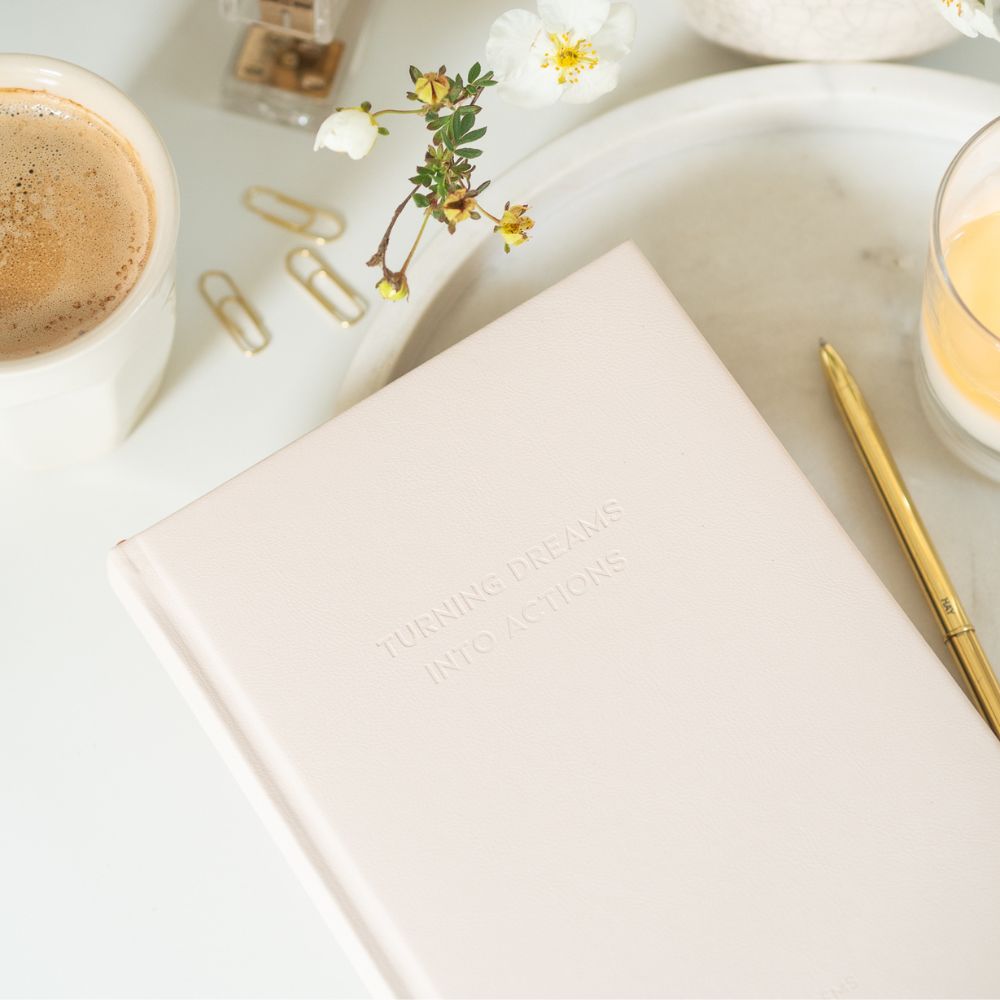
How to journal - three steps to start today
Journaling is a great way to get your thoughts out and onto paper, whether it’s to reflect on life, take note of all the things you want to remember, or release any emotions that are building up inside of you.
There are some great benefits of journaling, here are just some of them:
- Writing things down and journaling what you're thinking makes it easier for your brain to process those thoughts, which can lead to more insight and clarity into yourself and the world around you.
- Journaling can help with self-reflection, an important part of personal growth and development (and happiness).
- It’s great for your mental health and well-being - it reduces stress levels and anxiety, especially as you’re creating a space for yourself to get things off your chest instead of keeping them bottled up inside. It can be a positive release for you to write about what's on your mind and how you feel about things in the past, present or future. Journaling gives us an outlet for emotions. Sometimes when we feel overwhelmed by emotions like sadness, anger or fear it is hard for us to talk about them with other people because they might not understand how we feel or they might think it is silly or unimportant (especially if it has nothing to do with their lives).
- Writing down your worries, fears and anxieties can often help to put things into perspective. Once they’re written down, they may not seem as big as they do when they're just floating around in your head.
- Journaling can help help build your self-esteem by giving you something concrete that shows how much progress you've made toward achieving your goals and dreams — even if they're just small steps forward.
Here’s how to start journaling today.
1. Get organised
Find a notebook or journal that resonates with you. Our A5 'Turning Dreams Into Actions' notebook is hardback with lined pages and is perfect to get you started with journaling, giving you a dose of motivation each time you look at the beautifully inspiring front cover. Writing pen to paper is recommended rather than a screen. We’re on our screens (phone, computer, tablet, TV) a lot throughout the day, so going back to paper is a good break away from that.

Shop: A5 'Turning Dreams Into Actions' notebook
2. Create the time to journal
I say create as it can be so hard to find the time. Look at your day/ week and create a slot for your journaling session, even if it’s 10 minutes or an hour - it depends on how much time you have available, but consistency is key here.
3. Write
This is often the hardest part - getting started. Think about your goals for journaling. Are you doing it to release thoughts that are in your head, in which case you might find it easier just to write these thoughts out. Don't worry about what other people think – just write down your thoughts, feelings and experiences as if no one else will ever read them. And nobody else needs to know that you journal unless it’s something you choose to share with them.
If you need some structure or are stuck for ideas on how to start writing, here are a few journal prompts to help you get started.
- What emotions am I holding on to?
- Why am I feeling this way?
- How did I spend my day?
- Did it feel productive? Why?
- What am I grateful for?
- What did I learn from today?
- What can I do to make tomorrow better?
Notebooks are a great way to write things down and keep track of your thoughts, ideas and goals, and can be a versatile tool to use day-to-day. Take a look at our A5 'Turning Dreams Into Actions' notebook to get you started
P.S. Don’t forget to join our email list to be kept updated on our product launches.



